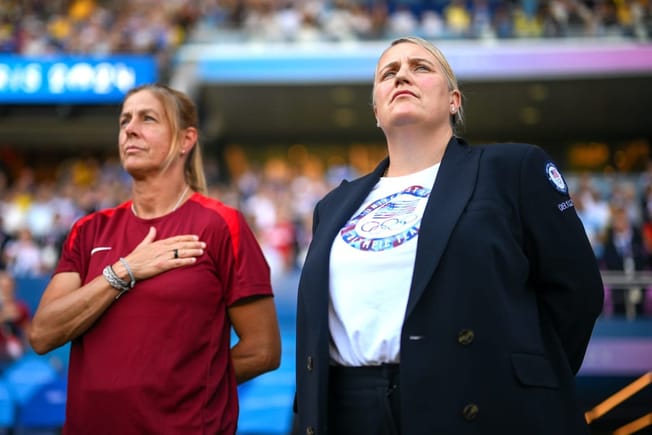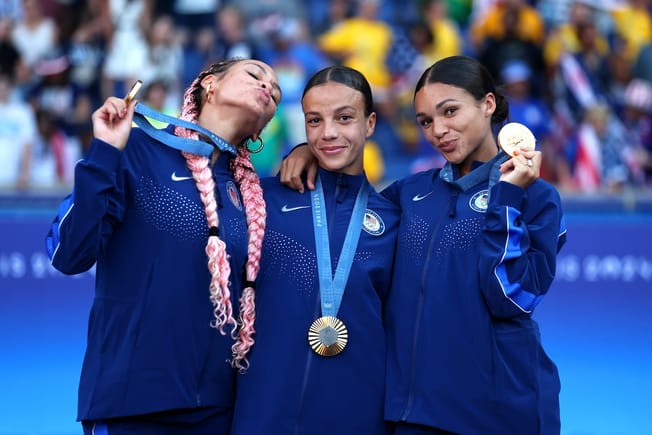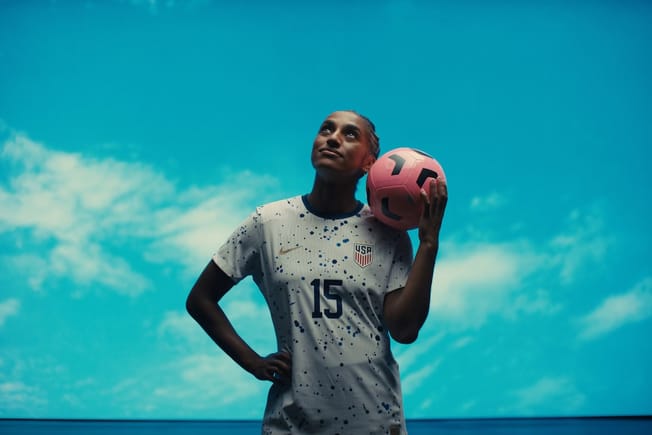In the end, there wasn’t much to be stressed about.
The U.S. women’s national team took down Australia 2-1 in the final game of the Olympics group stage, guaranteeing first place in Group B and securing a meeting with Japan in the quarterfinals on Saturday. There was a bit of nervy defending in the final 15 minutes thanks to wholesale substitutions and the game state demanding Australia pour bodies forward.
Otherwise, this was exactly the performance head coach Emma Hayes would have wanted when a draw was all the side needed to secure top spot in the group.
Just because it was a fairly straightforward result doesn’t mean there weren’t interesting threads unfurling below the surface.
Hayes chose not to rotate the side for the first 65 minutes, and now will be without Sam Coffey due to yellow card accumulation. The worries about breaking down low blocks should be put to bed based on the USWNT’s first half attacking performance. Even still, their sternest test waits in the quarterfinal against Japan.
How did each of these concepts reveal themselves in the match?
The unchanged lineup may have been the right call. Until it wasn’t.
Rose Lavelle dealt with groin tightness right before the tournament. Sophia Smith had to be pulled early against Zambia. Trinity Rodman had calf discomfort at the end of the match against Germany. Plus, Jaedyn Shaw and Tierna Davidson were both unavailable to play Australia.
This is a banged-up group. Coffey and Rodman were both carrying yellow cards, and another earned on Wednesday would bar them from playing in the quarterfinals.
Australia had also proved dire in their first two contests of the group stage. Given the U.S.’s need for only a draw to win the group, you’d understand if Hayes kept a lot of her preferred starting lineup on the bench.
She categorically rejected that idea. Julie Foudy indicated during the American broadcast that Hayes felt it critical for the first-choice options to play together to continue gelling. The benefits of added chemistry and cohesion outweighed the potential risks of injury or suspension. Preventing rust defeated prioritizing rest.
It was a reasonable gamble, given the situation.






